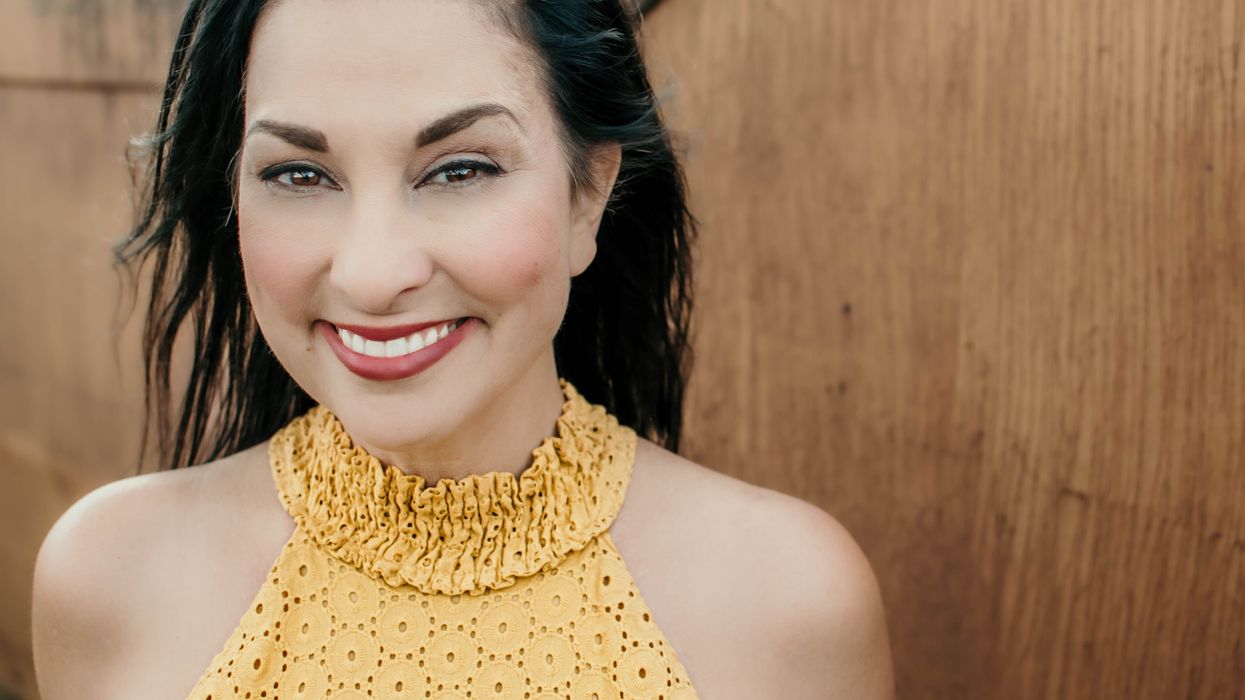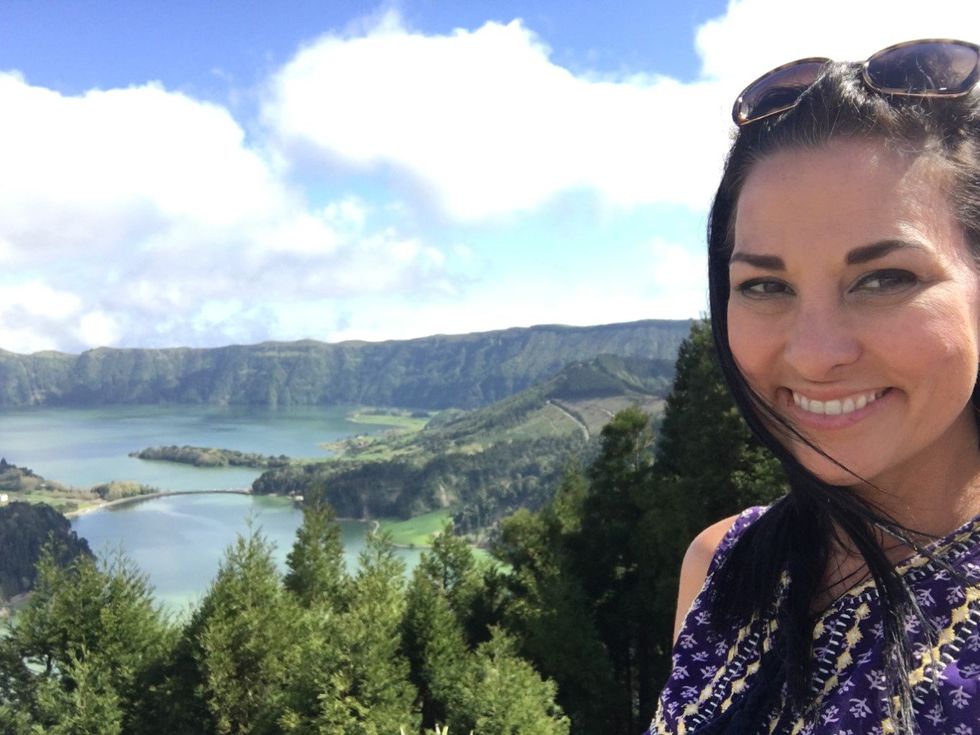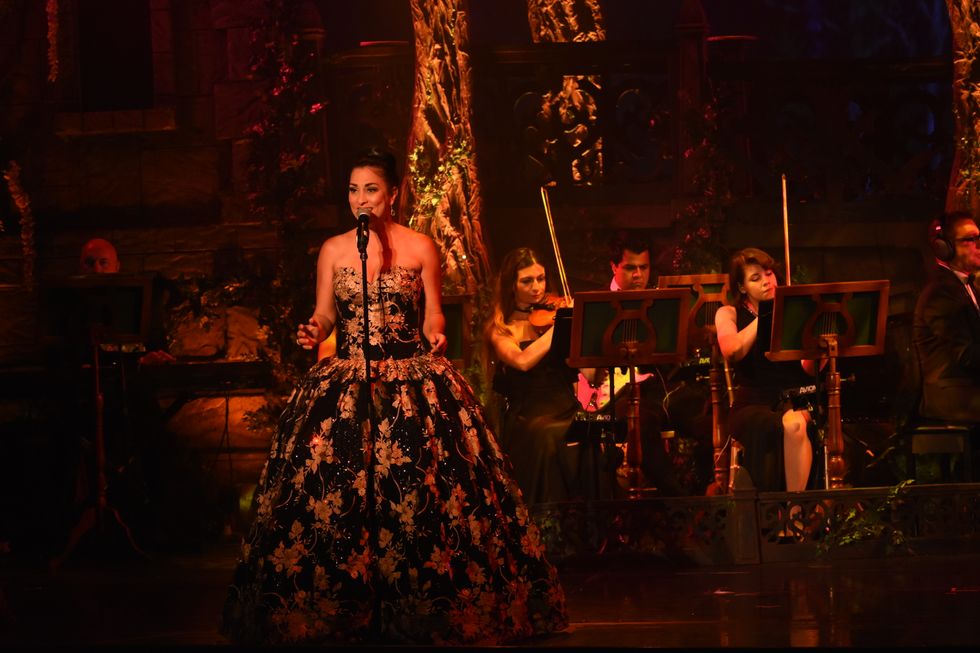
As told to Jacquelyne Froeber
February is American Heart Month.
It was Friday night in Waikiki and I was late. I rushed backstage and apologized to the crew. “I went to the M.A.C. counter to get my makeup done and it took longer than planned,” I said.
That wasn’t exactly true. I didn’t plan to go to M.A.C. — I’d forgotten my makeup at home. And it wasn’t the first time. Embarrassed, I avoided eye contact with the other singers.
The truth was I didn’t know what was going on with me. I was tired all the time — drained — even walking up a flight of stairs took my breath away. And the forgetfulness wasn’t like me. I chalked it up to working a full-time job and singing a few nights a week, but I knew something was off.
Just before I went on stage, I bent down to put water in my cup and felt pain in my back. I gasped and stood up quickly. I’d felt that pain before.
About a year earlier, I was visiting friends in Las Vegas when I started having heartburn and back pain and nausea that didn’t go away. I knew something wasn’t right so I called 911. At the hospital, I was diagnosed with myocarditis — inflammation of the heart muscle. But they couldn’t tell me why it was happening. I hadn’t been sick and there was no known infection. I tried to ask questions — why was I in such severe pain? — but they basically blew me off, gave me morphine that literally made me sick and said the symptoms would go away on their own. I had a follow-up appointment back at home, and the doctor said the same thing. I had myocarditis and I’d be fine, but I shouldn’t push myself or exercise for about a month.

2019
Now, that same feeling was back but a thousand times more intense. I did what many women do when experiencing heart problems — I tried to work through it. I bartered with myself: If I could get through the set, I’d drive myself straight to urgent care.
But I couldn’t do it. By then, I could barely stand up. One of the singers called 911, and responders took me out on a stretcher through the packed venue of visitors and locals waiting to see the show.
At the hospital, the doctor came into the room and went over my symptoms with me. He said I was having a heart attack and they wanted to do surgery.
I chuckled. “That’s not happening,” I said.
I was only 39. I exercised most days of the week. I knew I could probably eat better, but it wasn’t like I was having a burger and fries every day. Also, it wasn’t even possible for someone my age to have a heart attack … was it?
I called my family. They agreed that it seemed odd that someone so young could have a heart attack but that I should have the procedure because something was wrong. I couldn’t disagree.
When I woke up from surgery, the doctor confirmed that I did have a heart attack and they had to do an angioplasty. He showed me on the X-ray where the balloon had been implanted in my heart. He also said that I was anemic — apparently low iron levels can be a contributing factor to a heart attack — and I needed to take cholesterol and blood pressure-lowering medication.
I nodded along as he handed me prescriptions and I was cleared to go home. After he left, I sat there stunned and tried to wrap my brain around what had just happened. I was still in shock when a nurse commented on how beautiful I looked. I realized I was still in full makeup — lashes and all — from the night before.
In the weeks following the surgery, I was amazed by how much better I felt physically. I didn’t have the labored breathing. I wasn’t tired. But mentally, I struggled. I was scared that I was going to have another heart attack. I tiptoed around my life in a state of anxiety waiting for the other shoe to drop.
I was also depressed. I thought I was doing everything right before the heart attack and yet it still happened. I felt damaged in a way — like it was my fault. It took some time, but I started to see a therapist and quickly learned that being mindful of your mental health after a traumatic health event is just as important as taking care of your physical health.
When I talked to family and friends about what happened, everyone said the same thing: You’re too young to have a heart attack. Most people, like myself, thought you had to be older and experience chest pain — but it’s not like the movies. Women can have different symptoms than men, including severe heartburn, back pain and nausea just like I did. And the forgetfulness was also a sign due to the reduced blood flow to my brain.

2019
I wanted to spread the word, so I contacted my local chapter of the American Heart Association. I started speaking at events for heart attack survivors and sharing my experience with myocarditis, which was on the rise in young people during Covid. In 2002, I was honored to be an ambassador for the American Heart Association’s Go Red for Women movement to help raise awareness about heart health.
I’ve learned that a heart attack can impact a woman’s life in ways you probably wouldn’t think of. For example, I couldn’t continue taking birth control pills and I’m not a candidate for hormone therapy because hormones increase the risk for a cardiovascular event. Also, I was devastated to learn that I couldn’t be a bone marrow donor despite being a match for someone who really needed it.
Looking back, I wish I’d advocated for myself more during visits with healthcare providers. I would’ve asked more questions when told we’d “monitor” my cholesterol levels but that didn’t include a timeline or the fact that high cholesterol could lead to a heart attack. I would’ve educated myself about blood work and the numbers and the signs and symptoms of heart attacks in women.
Going through such a terrifying health scare changed my perspective on life. Not long after the heart attack, I quit my corporate full-time job to focus on singing and entertaining — mainly on cruise ships around the world.
So far, I’ve been to 37 countries and I wake up excited to do what I love every day because I know all of it can be gone in an instant — so why not live the life you want to live? Just make sure you’re taking care of your heart along the way.
Have your own Real Women, Real Stories you want to share? Let us know.
Our Real Women, Real Stories are the authentic experiences of real-life women. The views, opinions and experiences shared in these stories are not endorsed by HealthyWomen and do not necessarily reflect the official policy or position of HealthyWomen.
